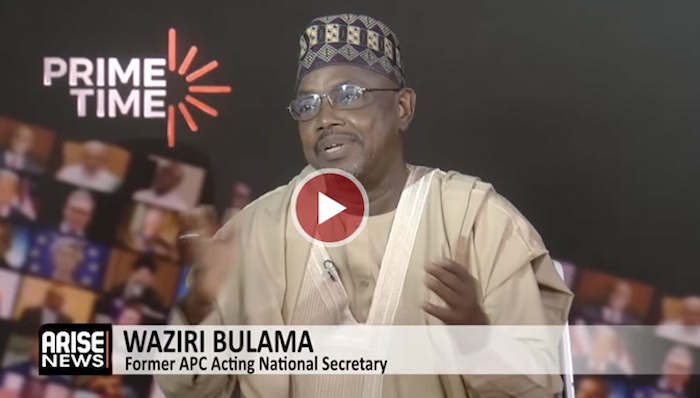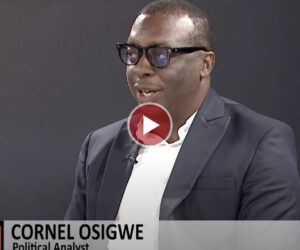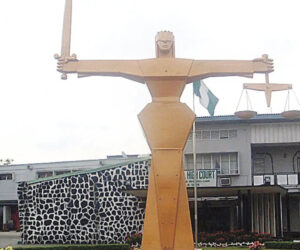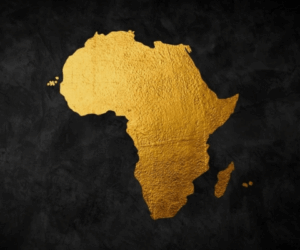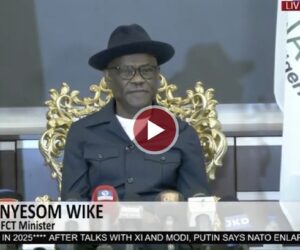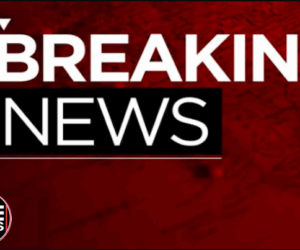
Former Acting National Secretary of the All Progressives Congress (APC), Waziri Bulama, has dismissed claims of the revival of the defunct Congress for Progressive Change (CPC), insisting the party no longer exists and that all energies should be channelled towards strengthening the APC.
Speaking in an interview with ARISE News on Wednesday, Bulama said:“The CPC as a party no longer exists. CPC is history. What we have today is APC, and all the ideals, all the aspirations, the commitments and the undertakings of the defunct CPC have been absorbed by the APC.”
He explained that the dissolution of CPC in 2013 was complete, with its structures, lawmakers and governors fully integrated into APC.
“The CPC as a party, you know, got dissolved. The entire structure of the party was dissolved along with the ACN and other parties in 2013, leading to the emergence of the APC. Even President Muhammadu Buhari himself, while alive, came out and said that his loyalty, his commitment, his convictions remain with the APC. So that seals the issue.”
Bulama stressed that recent moves by some former CPC chairmen claiming to speak for the bloc were attempts to cause division.
“The reason why we rallied under Senator Tanko Al-Makura was to respond to the false and mischievous attempt by a few of our former colleagues who wanted to disrupt and divide the APC by calling the name CPC. But CPC does not exist anymore. What exists now is APC and we have moved on.”
On internal complaints of marginalisation within APC, Bulama said such grievances were not peculiar to former CPC members.
“The idea of lack of reward, respect, regard, patronage – true or false – is always a cry within political parties. This cry about marginalisation is not just from elements within the old CPC, but even the ACN as well as the ANPP. They are all crying of one form of marginalisation or another. Our party leadership is doing their best to address these issues.”
He admitted that the weak institutional development of parties in Nigeria fuels factionalism.
“The reason why we have these divisions and squabbles in the parties is largely because we have failed collectively. The parties have not yet been developed into ideological hubs. They are supposed to be strong corporate structures guided by ideologies, but we have not grown into that level. Indeed, the sluggish way in which we are handling this issue of making our parties fully institutional is really affecting the quality of our democracy.”
Bulama pointed to voter apathy as the biggest threat to Nigeria’s democracy.
“The biggest elephant in the room at the moment is voter apathy. In the 2023 presidential election, out of 94 million registered voters, only 26 million came out to vote. It shows that people have a cold attitude towards the entire democratic process. That is an issue that all the elites and all the parties ought to interrogate to improve the trust gap that exists between citizens and the political class.”
Reflecting on Nigeria’s democratic struggles, he argued that the country’s history of military rule has shaped present weaknesses.
“Over half of our post-independence life was ruled by the military. Even by 1999, when the military decided to hand over, Nigerians had to look for a leader like Obasanjo to take over the country. Later, we had to find Buhari, a general and former head of state trusted by Nigerians to hold the country together. The challenge before the political elite has always been: how do you build institutions that respond to the national need and keep the country united?”
He also rejected claims that any region alone can determine Nigeria’s presidency.
“Neither would a northerner win election without the support of other parts of the country. Buhari could not make it in three successive elections until we formed the APC in 2013 as a broad-based national party. The politics behind Buhari was ideological. He was promoted as a symbol of accountability, courage and service, and that movement connected with citizens nationwide.”
On speculations that internal blocs could threaten APC’s unity ahead of 2027, Bulama said such fears were exaggerated.
“This entire movement to rally leaders of the defunct CPC was entirely symbolic. In practical terms, there is no substantial force behind it. What exists is APC, with a President, leadership in the National Assembly, governors in 24 states. This is the team that will work for the APC. All the noise on both sides is symbolic. APC is what matters. There is no CPC.”
Turning to President Bola Tinubu’s economic policies, Bulama admitted they are painful but necessary.
“Everybody knows Nigerians are struggling, are suffering, are carrying heavy burden. The cost of living is really beyond the middle class. But the President knows it is bad, and he said he had to take these difficult decisions to correct it. It’s just like somebody who has a wound – you have to apply iodine to get a cure.”
He said the removal of subsidy and the ending of multiple exchange rates were necessary steps.
“Clearly, this oil subsidy issue was one area where cheap money was just going away. It had to be stopped. The other one is the dual exchange rate, where people with connections got allocation and resold to businessmen. That had to stop. These were clear things the President could do with one action.”
On insecurity, Bulama gave a personal example.
“I come from Borno State. We have literally been under siege for 15 years. Maiduguri, my beloved city, has been under curfew for 15 years. Is it believable? That is part of the reason the North is crying too. There are governance challenges, but you must see what the government is doing and how much effort is being made.”
He added that Tinubu has shown respect to the memory of the late Buhari.
“The President has done enough to honour President Buhari. He led a state burial for him. He mourned deeply. Buhari and Tinubu referred to themselves as friends and political partners. They aligned to bring about the APC, which put an end to identity politics and made history by winning three successive presidential elections.”
However, he warned that APC’s survival depends on rediscovering Buhari’s ideological appeal.
“The big challenge for President Tinubu and our party leaders is how to rediscover that ideological strength that mobilised 12 million youths, workers, scholars and technocrats who sacrificed to bring about those votes. That is the real challenge for the APC today.”
In a parting shot at critics, Bulama dismissed former Justice Minister Abubakar Malami’s remarks against Senator Tanko Al-Makura.
“Even though Buhari appointed him as Justice Minister, who is Malami, for God’s sake? He is in no position to speak on any issue for anybody.”
Boluwatife Enome
Follow us on:

